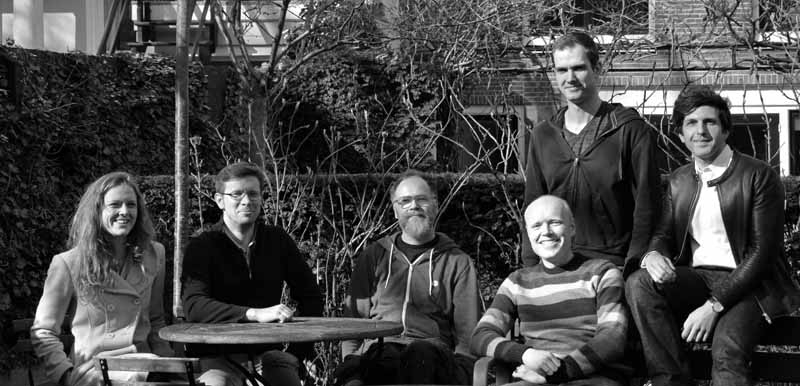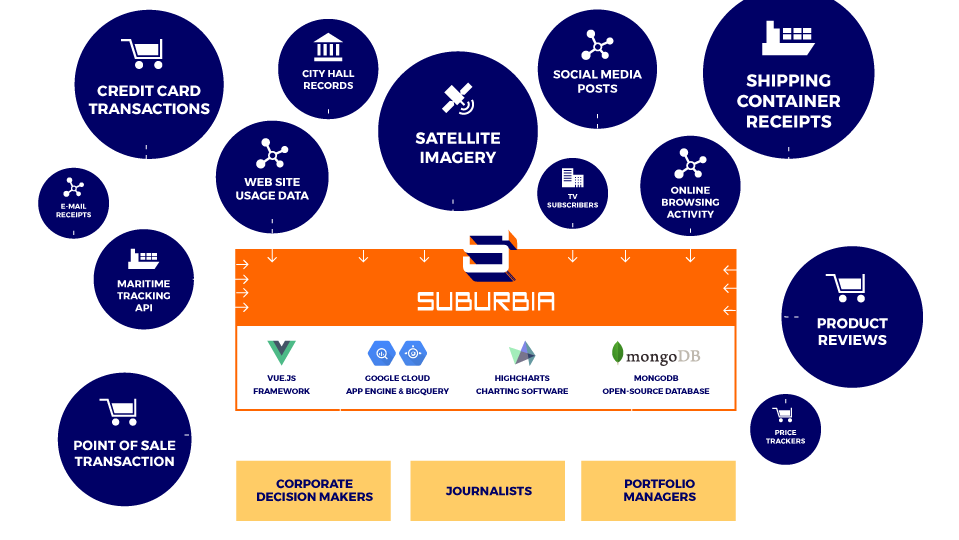
Hamza Khan, founder and CEO of data insights provider Suburbia, talks us through how to discover real value in new data sources, advises keeping all doors open to the unexpected, and feels no shame in expressing a love for Pabst Blue Ribbon beer (He will be forgiven 🙂 )
Tell us a bit about alternative data and Suburbia and how they can provide better insights to the industries that you target?
Alternative data is getting a lot of buzz in the fintech world, but it’s also an ambiguous term. For me, alternative data is either data that isn’t currently being collected (like metadata generated from apps) or existing data used in new ways.
For example, if you work in the TV industry, tracking premium subscriptions is just regular data. But what if you used premium TV subscriptions for a model to track housing sales? That’s alternative data! Suburbia is a platform which collects alternative data from many industries in a unified format, so you can find really cool insights faster than ever.

How is Suburbia tackling crucial issues such as ethics & privacy when it comes to using data?
Personally, I hate the idea that someone would use my actions (digital or offline) to sell me junk I don’t need. At Suburbia we have a strict zero personal data policy and we’re still successful because there’s real value in aggregated data. For example, it doesn’t matter whether a barrel of oil went into a Prius or a Hummer, what really matters is that it was consumed, and oil prices react accordingly. If the trillion dollar energy industry can trade on aggregated data, why can’t retail, or advertising? Right now, the world is underestimating aggregated data of the kind Suburbia provides, but they shouldn’t – it’s safe, clean and extremely valuable.
Thinking about the growing and emerging sources of data, what type of skills does the future work force need to extract meaning and utility from that information? Do you think that skills needed are in adequate supply across the industry?
Ha – tough question! I think there are two schools of thought – that data scientists are the new millionaire rock stars, or that they’re glorified statisticians (no offense to my statistician friends).
The truth depends on how and for what their skills are used. At Suburbia, we hire ‘insight scientists’, which means complex theory must result in real world insights.
Watson at IBM is a great example: it received a lot of press for participating in a TV game show, but its real-world impact on health care or other industries remains elusive. In my opinion, the IBM employee who will ‘win’ with Watson and the data student who will ‘win’ at their career, will be the one who connects the theory with something that you or I can benefit from.
Can you share one observation on life at a start-up?
Keep as many doors open as possible. Whether that’s potential customers, investors or employees, you never know who you’ll meet that has something valuable to learn from.
So anyone reading this who might have interesting data, or a problem that could be solved more efficiently, I’d encourage them to reach out to us, it could lead to something surprisingly powerful.
One of our partners is going to brew a special festival beer. In terms if gauging our attendees’ preferences, can you recommend some alternative data sources?
Actually, Suburbia already tracks beer sales in The Netherlands, so we can see whether it’s New England IPA’s or German ice bocks that are trending… can’t beat a Pabst Blue Ribbon though!!
We are asking our demo companies to contribute a song to our FinTECHTalents playlist. What’s your inspirational, jump out of bed in the morning song?
‘What if I saw you on the street’ by Thin Lips. The opening bars are so infectious that they’ll give you energy for whatever you do – whether that’s climbing a mountain, baking a cake, or, in Suburbia’s case, collecting awesome alternative data – you just do it better with this song playing!











